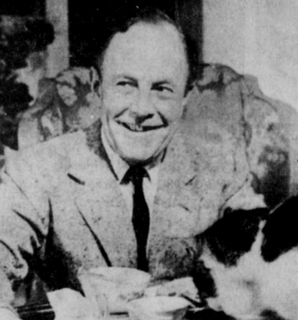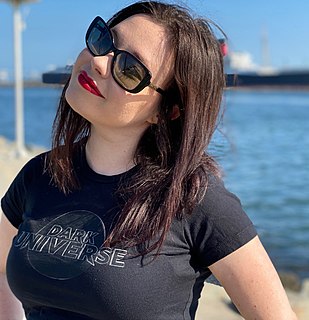A Quote by Isaac Newton
We are to admit no more causes of natural things than such as are both true and sufficient to explain their appearances.
Quote Topics
Related Quotes
There cannot be a language more universal and more simple, more free from errors and obscurities...more worthy to express the invariable relations of all natural things [than mathematics]. [It interprets] all phenomena by the same language, as if to attest the unity and simplicity of the plan of the universe, and to make still more evident that unchangeable order which presides over all natural causes
It has been long considered possible to explain the more ancient revolutions on... the Earth surface by means of these still existing causes; in the same manner as it is found easy to explain past events in political history, by an acquaintance with the passions and intrigues of the present day. But we shall presently see that unfortunately this is not the case in physical history:-the thread of operation is here broken, the march of nature is changed, and none of the agents that she now employs were sufficient for the production of her ancient works.
There is a long list of psychology research demonstrating that appearances matter more than most us would care to admit. As shallow as it may be, better-looking people have been shown in various studies to have higher self-esteem and more charisma, are considered more trustworthy and are better negotiators.
Life in the country teaches one that the really stimulating things are the quiet, natural things, and the really wearisome things are the noisy, unnatural things. It is more exciting to stand still than to dance. Silence is more eloquent than speech. Water is more stimulating than wine. Fresh air is more intoxicating than cigarette smoke. Sunlight is more subtle than electric light. The scent of grass is more luxurious than the most expensive perfume. The slow, simple observations of the peasant are more wise than the most sparkling epigrams of the latest wit.
I can no more explain why I like "natural history" than why I like California canned peaches; nor why I do not care for that enormous brand of natural history which deals with invertebrates any more than why I do not care for brandied peaches. All I can say is that almost as soon as I began to read at all I began to like to read about the natural history of beasts and birds and the more formidable or interesting reptiles and fishes.
I am aware that the conclusions arrived at in this work will be denounced by some as highly irreligious; but he who denounces them is bound to show why it is more irreligious to explain the origin of man as a distinct species by descent from some lower from, through the laws of variation and natural selection, than to explain the birth of the individual through the laws of ordinary reproduction. The birth both of the species and of the individual are equally parts of that grand sequence of events, which our minds refuse to accept as the result of blind chance.







































